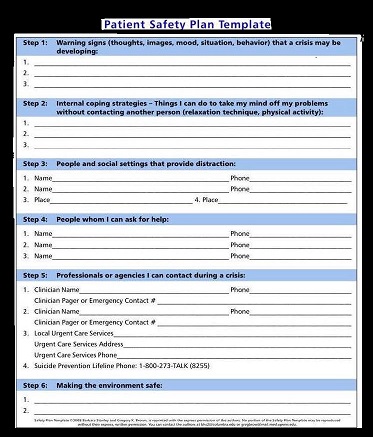“Operation ZERO”
“Suicide Prevention”
Why Operation Zero?
New CDC (Centers for Disease Control and Prevention) (2016) report estimates that 20 veterans a day commit suicide and another 5-9 attempt suicide. Despite death not being the outcome these veterans have still caused great injury to themselves and others. They are forgotten. Those who have attempted suicide are much more likely to attempt it again.
The ultimate goal is Zero Veterans Attempt Suicide!
In most cases suicide is preventable
How can we Help?
Aid in Research (Illinois Task force on Veteran Suicide)
Educating our Brothers on signs and intervention
Help develop a safety plan, (see safety plan template).
Partner with other community based organizations
Raise funds for use to train, educate and support other worthwhile charities
Disseminate information such as the Veterans Suicide hotline and other means of mental health (pocket phone cards)
How to best intervene? Use A.C. E. (A.C.E. Ask; Care; Escort)
Ask: “Are you thinking of killing yourself?”
Remain Calm, maintain eye contact
Listen more than you speak, don’t argue
Act with confidence
Use open body language
Be honest and up front
Myth: Asking about suicide will plant the idea in a persons mind.
Reality is asking does no more than give permission for that person to share their problem with you. Most people who commit suicide have communicated some intent.
How to best intervene? Use A.C.E.
Care: “Tell me what happened that making you feel so distressed right now.”
Understand that the person may be in pain.
Allow and encourage him or her to talk freely.
Restate what the person said to clarify.
Listen for reason that may keep that person alive.
Keep your own safety in mind, take action. Make plans to remove lethal means (weapons, pills) and talk about ways to stay safe.
Myth: If someone wants to commit suicide there is nothing you can do about it.
Reality: The acute risk for suicide is often time-limited. If you can help the person survive the immediate crisis and overcome the strong intent to die by suicide, you have gone a long way toward promoting a positive outcome.
How to best intervene? Use A.C. E.
Escort: To behavioral health professional.
Adopting the attitude that you are going to help the person will save his or her life.
Ensure someone stays with the person until they receive the appropriate help. Don’t leave them alone.
Get Help immediately! Know where they can get professional help. (VA, Vet Center or emergency room.)
A person with suicidal thoughts needs immediate help
Importance of Identification
Suicidal Individuals are not always easy to identify.
There is no single profile to guide recognition.
There are a number of warning signs and symptoms, some signs of suicide are obvious, but others are not. Warning signs:
- Relationship/Finance Problems
- Current suicide thoughts/plans or talk about dying
- Prior suicide attempts or family history of suicide
- Alcohol/Drug Abuse
- Behavior health issues, depression, anxiety, PTSD.
Signs and symptoms do not always mean the person is suicidal but, when you recognize signs it is important to ask the person how they are doing because they may mean that they are in trouble.
Safety Plan: What is it?
Things I can do to feel better
Places I can go to feel better
People I can call for help
Local professional help
The one thing that is most important and worth living for?
Patient Safety Plan Template:

Download Patient Safety Plan Template
It takes the courage and strength of a warrior to ask for help
If your in emotional crisis, call National Suicide Lifeline
1-800-273-8255 Option #1
or text 838255


















